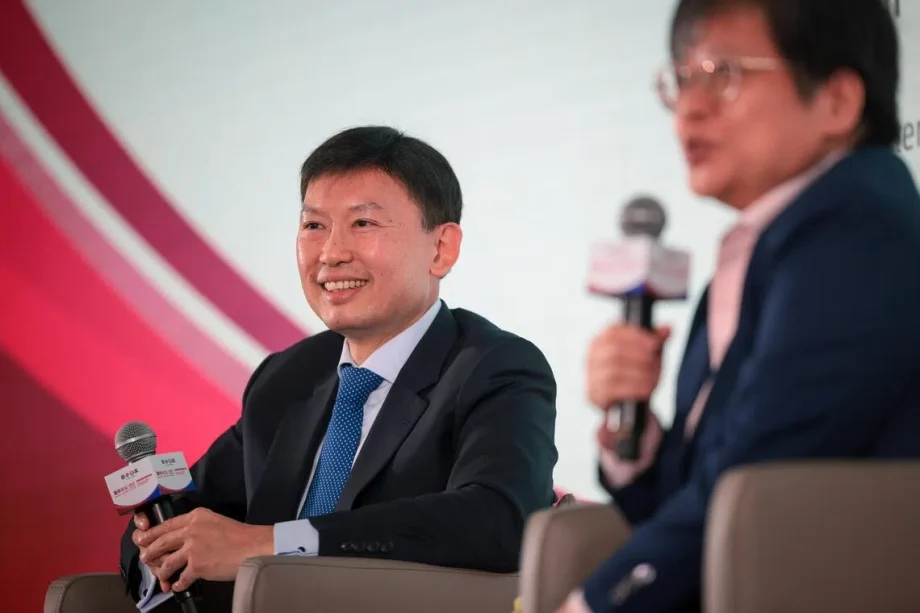SINGAPORE – Helping Singapore and Chinese firms to grow together and expand is one of three ways that the “strong” Singapore-China relationship can be taken to a higher level, said Minister for National Development Chee Hong Tat on Oct 10.
Describing the two countries as good friends who can share heart-to-heart talks over red wine or Chinese liquor Maotai, Mr Chee said both governments should also work together to foster innovation in new growth areas – such as artificial intelligence, automation and the green economy – and encourage more interactions between their young people.
Speaking at the Lianhe Zaobao Singapore-China Forum held at the Four Seasons Hotel in Orchard, Mr Chee said Singapore and China have a similar long-term mindset and are “pragmatic, not dogmatic”.
“(This) makes us good partners in facing common challenges together,” said the minister, who chairs the Chinese Community Liaison Group here, and has been involved in joint initiatives with China, such as the
Sino-Singapore Tianjin Eco-City
.
Mr Chee expressed confidence that Beijing will overcome its present difficulties with tariffs, unemployment and housing, and noted that, while China has surged ahead of Singapore in many areas, the Republic continues to bring distinctive strengths such as connectivity and a reputation as a trusted hub.
“While our bilateral relationship will go through ups and downs over the years, just like any other close friendship, if we focus on building a partnership which is comprehensive, high-quality and forward-looking, Singapore and China will enjoy mutual benefits for many generations to come,” he said.
In a dialogue with Lianhe Zaobao associate editor Han Yong Hong at the same event, Mr Chee suggested that Singapore could work with China to train talent from the wider South-east Asia region.
He also proposed other areas of collaboration to tackle common problems, such as energy, urban redevelopment and healthcare for the elderly.
Asked about the challenges of finding common ground in today’s divided world, Mr Chee cautioned against taking a tit-for-tat attitude in the face of growing protectionism.
“My view is that, in order to reduce conflict between the China and US, we need to focus on one area. That is to enhance the exchanges among young people,” he added.
Also at the forum, Senior Minister of State for Foreign Affairs and Home Affairs Sim Ann spoke at a panel discussion about Chinese culture and the evolution of Chinese identity.







